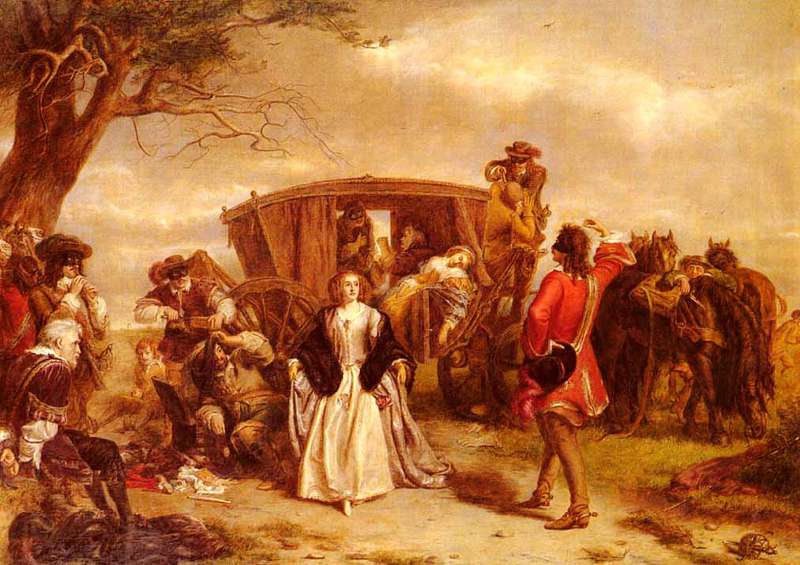FWP:
SETS == KYA
ROAD: {10,12}
SKY {15,7}
SOUND EFFECTS: {26,7}
After the first two very complex, ponderous verses, this excellently witty one is all the more of a treat. In line one, we have another example of the versatility of kyā ; for more on this, see {15,10}. (For an especially close comparison, see {21,10} with its use of kyā kyā -- and its opposite conclusion.)
As usual in the case of this supremely canny poet, each reading of the first line evokes an entirely apposite reading of the second line.
(1a) What many and serious claims we have against the sky for vanished pleasure! We think it's a highway-robber (or at least a protector and enabler of highway-robbers), and when it's brought to justice someday, we'll pursue our right to have our goods back!
(1b) What kinds of claims do we have against the sky for vanished pleasure? We consider it a highway-robber or accomplice-- will we be able to obtain any restitution? Are we right to think that such debts exist, and can be enforced? We need to give the matter some thought.
(1c) As if we have any claims against the sky for vanished pleasure! What an absurd idea! We have foolishly considered the sky a defendant whom we could take to court, when in fact it is a supremely powerful highway-robber and would never dream of acknowledging our claims. We are not plaintiffs with a strong case, but helpless victims, and we should stop being so naive: the chances for restitution are nil.
The third reading, (1c), is surely the most amusing, and is the one that leaps out first of all-- but the presence of not just kyā but kyā kyā , with its emphasis on variegatedness and multiplicity, guides us strongly toward other possibilities as well. In Arkansas people say 'what-all' in such cases, which works perfectly, so I've pressed it into service (though unfortunately it's only a regional usage).
And in terms of sound effects, how resonant is the sequence kā kyā kyā taqāzā ! Through the repetition, alliteration, and assonance the sense of urgency, demandingness, insistence makes itself felt.
A piquant verse for comparison: {120,10}.
On samajhnā as 'to consider', see {90,3}.

Hali:
This theme too is absolutely drawn from reality: for after being free of care, when people become needy, they always consider themselves oppressed and tyrannized and struck down by the sky, and to their last breath they retain the hope that sometime or other they will certainly receive justice and their star of fortune will rise again.
==Urdu text: Yadgar-e Ghalib, p. 145